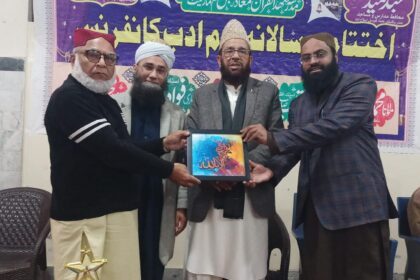Senior diplomats and defence analysts at an Institute of Policy Studies seminar in Islamabad warned that the Gaza genocide exposes a deepening global indifference and the failure of international institutions to protect civilians. Speakers argued that inconsistent responses from the United States, muted reactions by many Arab states, and weak enforcement by global bodies have allowed Israeli aggression to continue with impunity.
Former ambassador Naila Chauhan stressed the importance of accurately framing the Palestine issue to build a comprehensive public understanding. She warned against reducing the conflict to only religious, political or commercial terms and highlighted that commercial interests, including real estate pressures, have contributed to efforts to displace Palestinians. She said what began as a tragedy limited to Gaza now threatens regional security and noted that even traditional allies have pushed for ceasefires only to see such measures consistently vetoed by the United States. Chauhan also criticised the targeting of Hamas negotiators in Qatar as evidence of a lack of genuine commitment to peace.
Former ambassador Nasrullah Khan described the scope of suffering inflicted on Palestinians as beyond words, observing that inhumane treatment predated 7 October and has since escalated into what he called a collective failure of the international community. He said the Gaza genocide is emblematic of global institutions falling short of humanitarian expectations.
Brigadier (R) Syed Nazir pointed to persistent political and military support from the US and some European states as factors enabling continued violations. He argued that the failure of peacekeeping mechanisms and the tepid response of many Arab capitals have emboldened further abuses. Nazir suggested that a unified Muslim response — combining military, economic and technical resources — and a binding collective defense arrangement could serve as a deterrent. He highlighted the recently agreed Pakistan–Saudi strategic defence framework as a potential building block for a dependable security structure in the region.
Dr Azhar Ahmad urged moving beyond event narratives toward rigorous analysis of the veracity of claims and the adequacy of international actions, saying such scrutiny is essential to halt the Gaza genocide. He recommended careful examination of how global responses either constrain or enable continued violence.
Former ambassador Syed Abrar Hussain observed that the widespread sympathy for Palestinians has rekindled debate on a two‑state solution and encouraged some countries toward recognition. Yet he warned that diplomatic recognition alone is insufficient while ceasefire resolutions are repeatedly vetoed. As a practical step, Abrar Hussain proposed deploying Muslim peacekeeping forces to Gaza under a coordinated framework to restore security and protect civilians, underscoring the need for resource sharing, joint defence planning and rapid, collective action.











